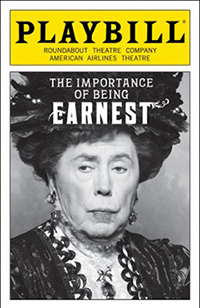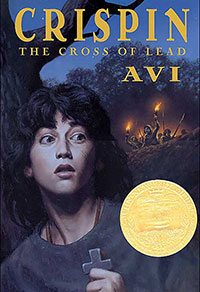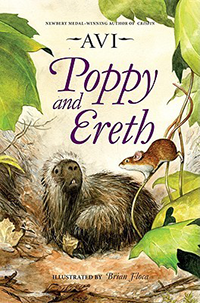Consider names, names of characters. Alice in Wonderland. Hamlet. Huckleberry Finn. Do we accept (and know) these names because the literary works are famous? Or do we know the names because they could be none other? Would The Tragedy of Ted, Prince of Denmark, work just as well?
 Years ago, when working as a librarian at the NYPL’s Theatre Collection at Lincoln Center, I would come upon manuscripts of famous plays in early drafts. Thus Oscar Wilde’s great play, The Importance of Being Earnest, was titled Lady Lancing. And Edward Albee’s play, Who’s Afraid of Virginia Woolf? had character names very different than in the final version. It made a big difference.
Years ago, when working as a librarian at the NYPL’s Theatre Collection at Lincoln Center, I would come upon manuscripts of famous plays in early drafts. Thus Oscar Wilde’s great play, The Importance of Being Earnest, was titled Lady Lancing. And Edward Albee’s play, Who’s Afraid of Virginia Woolf? had character names very different than in the final version. It made a big difference.
Choosing the right name for a character is complex. If you choose a name from someone you know, say, your weird uncle Fred, will that “Fredness,” so to speak, infect your character in a way you don’t intend?
(Did you know that onomastics is the term for the study of the history and origin of proper names, especially personal names?)
When I wrote Blue Heron I used the name of a girl who was the daughter of a single-parent friend, a girl who read my books. When I told my friend what the story was, about a girl from a single parent home, my friend asked me to change the name of the character. I did. But in doing so, my feelings about the book also changed.
When choosing a character name, one must consider gender, culture, historical moment, and what it might suggest about the character. Also, you must consider variety. And context. You would not name characters Jack and Jill, unless you wished to suggest a reference to the famous poem.
 I chose Crispin because it is a medieval name and it is easy to say. I knew the name from the “St. Crispin Speech” as it is called, from Shakespeare’s Henry V (Act IV Scene iii ).
I chose Crispin because it is a medieval name and it is easy to say. I knew the name from the “St. Crispin Speech” as it is called, from Shakespeare’s Henry V (Act IV Scene iii ).
On my own reference shelf, I own a number of books of names. One is titled Historical Names, providing names popular during particular historical periods. Thus I have a book of Irish names, Italian names, used for books that pertain to that place and culture.
I don’t recall if I ever considered another name for Charlotte for The True Confessions of Charlotte Doyle. I do recall doing research and learning that Doyle was a common name in 19th century Providence, Rhode Island, as was the name Charlotte.
 When I wrote Poppy, the mice in the story, a story set in a forest, all characters have names of flowers. But there are so many names of flowers that I could match names to character personalities. Thus, Poppy’s pompous, over-bearing father is called Lungwort.
When I wrote Poppy, the mice in the story, a story set in a forest, all characters have names of flowers. But there are so many names of flowers that I could match names to character personalities. Thus, Poppy’s pompous, over-bearing father is called Lungwort.
As for Ereth the porcupine, if I tell you that Erethizontidae, is the porcupine’s scientific name, you see how that worked out.
When I wrote Ragweed—the first in the Poppy series—which is set in a city, the editor Elise Howard suggested I switch to names with an urban resonance. I therefore choose car parts, thus Clutch, and my favorite, the drummer in Clutch’s band, Lug Nut.
And, thinking of Poppy, I am reminded that was not the original name for my lead character. When I wrote the book she was called Pip. As it happened, I was reading the (almost) final draft of the book to a class at the Moses Brown School in Providence. At some point a boy came up to me and said, “Is this how you got the name for your book?” He showed me a Canadian book titled Pip, the Story of a Mouse.
I went home and changed the name to Poppy.
A rose by any other name would smell as sweet.
3 thoughts on “A Rose by Any Other Name”
I recognized that nearly every name in Beyond the Western Sea is a saint.
You have said you have no idea where the character’s name “Perloo” came from. What about “Jolaine”? I was born in 1950 and that is my name. Until I read your novel in the late 1990s I had never come across my name in any encounter or written form. I am curious how you came upon it.
I have no idea where I got the name Jolaine. I think I made it up, needing what was for me an invented name. . Thanks for sharing,